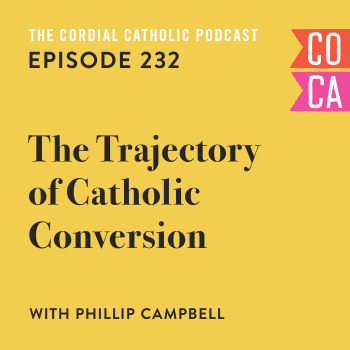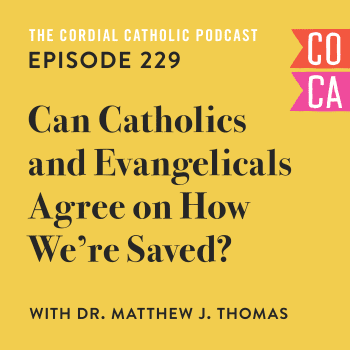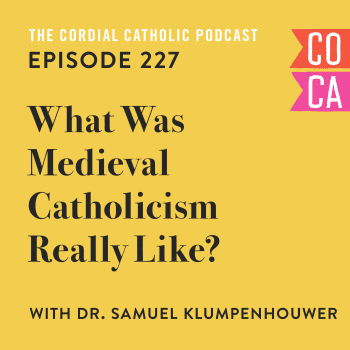
I was once asked the question by a friend of mine, “Which is more important: The Bible or tradition?”
As a good evangelical I knew that the answer to any question in Sunday School was either “the Bible” or “Jesus” and although I wasn’t in Sunday School any longer I knew tradition couldn’t be the answer.
“The Bible,” I said confidently, congratulating myself for knowing so much about my faith.
“But who put the Bible together?” My friend replied. “Wasn’t it tradition?”
I had to admit, instantly, that he was right.
The Bible didn’t fall from the hands of God into the hands of the Church in one divine movement. Heck, it wasn’t even heroically thrust from the hands of the apostles into ours in some last desperate attempt to transmit the faith. In fact, the Bible wasn’t even collected up into its current form until about 400 years after the death of Christ. Over that time the letters, eye witness accounts, and documents which make up today’s Bibles were affirmed by people like St. Augustine and through Church Councils attended by bishops who traced their claim to any authority at all, back to the apostles, who traced their authority back to Christ.
It was these bishops, like Augustine, who leaned on the authoritative weight of their office to say, “These are the books which we accept as true, as infallible, as inspired by God. These are the books which should be collected together and read. This is the Bible that all Christians should read.”
In fact, if you start to look at the history of how the Bible was collected together, that history looks awfully Catholic.
At least this is what I realized when I began to do the research and if we’re honest with ourselves it’s the only real conclusion that can be made.
The Catholic Church put the Bible together and affirmed its infallibility.
Renown New Testament scholar N.T. Wright disagrees. In Scripture and the Authority of God, Wright rejects the claim that a decidedly Catholic Church authoritatively ruled over the assembly of the Bible. He says,
This makes a rather obvious logical mistake analogous to that of a soldier who, receiving order through the mail, concludes that the letter carrier is his commanding officer. Those who transmit, collect, and distribute the message are not in the same league as those who write it in the first place.
Wright concludes that the Catholic Church’s role in the assembly of the Bible is nothing more than that of a mail man. The Catholic Church and its bishops merely passed on books and letters which made up the New Testament as a mail man passes on a letter.
But, heavens above, the Church did not merely deliver the books of the Bible in tact.
The Church isn’t the postman, it’s the post office.
If, in Wright’s analogy, the word of God is a letter to be delivered the Church wasn’t merely the postman delivering but the post office, sorting out which letters go where, whose letter is genuine, whose letter is faked, who is reading what, what is going where.
The Church did the sorting. The Church did the deciding. The Church was the authority that collected the Bible together and decided what was in and what was out and, yes, it was messy and complicated but if the Bible has been recognized as divinely inspired it’s been because the Church decided which books were divinely inspired and put them all together.
It wasn’t as if all the “letters” to be delivered were neatly stacked on the boss’s desk waiting to be mailed.
It wasn’t as if all the books of the Bible were there, written, and ready to be collected up. That took discernment by a body with authority.
Because there are books, letters, and a whole bunch of stuff that Dan Brown likes to remind us about which didn’t make it in to our copies of the Bible we know that there’s stuff out there, elsewhere, that wasn’t good enough. For a myriad of reasons that stuff wasn’t included in the Bible.
And, therefore, it took more than a mail man to figure out which mail to deliver. History tells us, instead, that it took Church Councils, bishops, people who traced their authority back to the apostles in an unbroken line of succession, that put together our Bible and handed it down.
And understanding the ramifications of a conclusion like that takes an ample dose of humility. And, when considering which is more important the Bible or tradition it’s worth pausing, for at least a second, to consider the question a bit more closely. Because where did the Bible come from anyway?
And who put it together?
Photo by Wayne Stadler.












